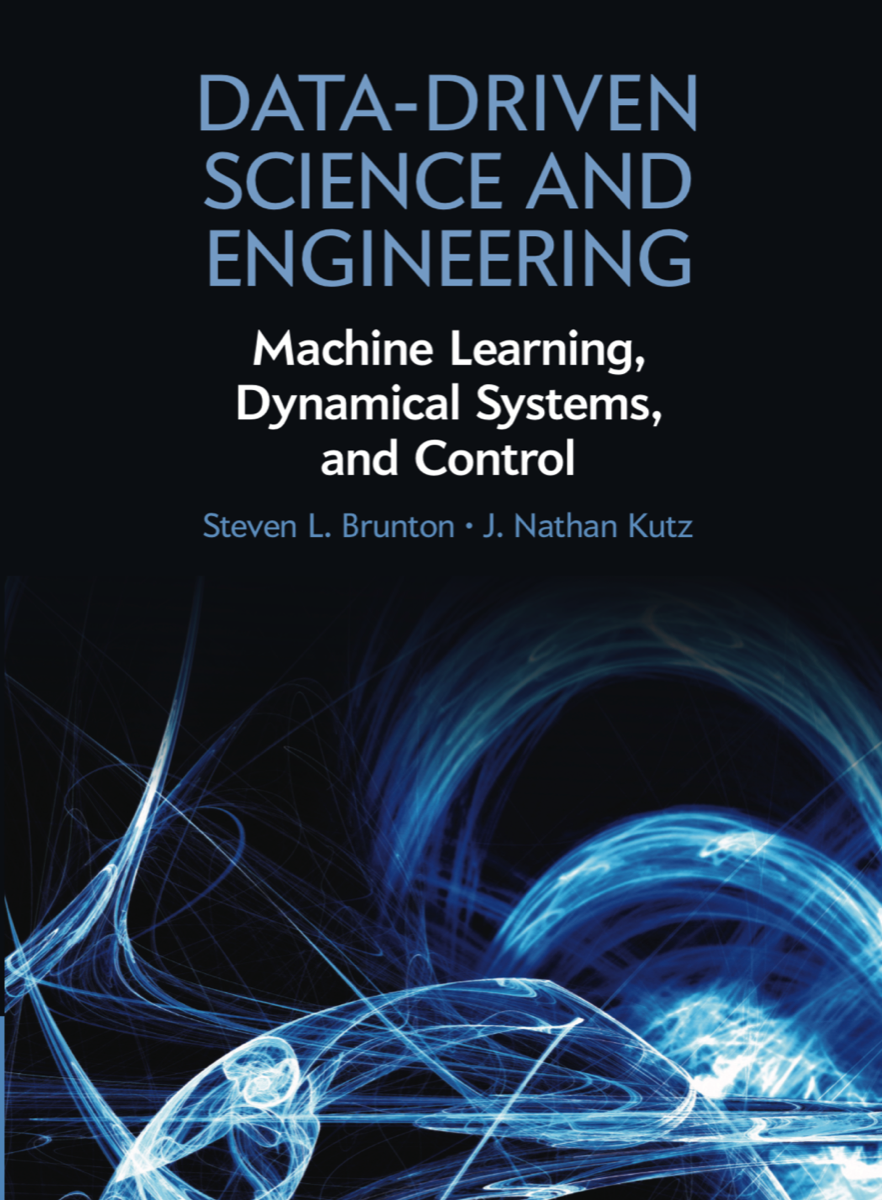Data-driven discovery is revolutionizing the modeling, prediction, and control of complex systems. This textbook brings together machine learning, engineering mathematics, and mathematical physics to integrate modeling and control of dynamical systems with modern methods in data science. It highlights many of the recent advances in scientific computing that enable data-driven methods to be applied to a diverse range of complex systems, such as turbulence, the brain, climate, epidemiology, finance, robotics, and autonomy. Aimed at advanced undergraduate and beginning graduate students in the engineering and physical sciences, the text presents a range of topics and methods from introductory to state of the art.
Key features:
—In-depth worked examples paired with comprehensive, open-source code
—Concise, digestible explanations of complex concepts and their applications
—Extensive online supplements include exercises, case studies, lecture videos, data, and supplementary code
Key features:
—In-depth worked examples paired with comprehensive, open-source code
—Concise, digestible explanations of complex concepts and their applications
—Extensive online supplements include exercises, case studies, lecture videos, data, and supplementary code
Advance Praise:
"This is a very timely, comprehensive and well written book in what is now one of the most dynamic and impactful areas of modern applied mathematics. Data science is rapidly taking center stage in our society. The subject cannot be ignored, either by domain scientists or by researchers in applied mathematics who intend to develop algorithms that the community will use. The book by Brunton and Kutz is an excellent text for a beginning graduate student, or even for a more advanced researcher interested in this field. The main theme seems to be applied optimization. The subtopics include dimensional reduction, machine learning, dynamics and control and reduced order methods. These were well chosen and well covered."
— Stan Osher - University of California
"Professors Kutz and Brunton bring both passion and rigor to this most timely subject matter. Data analytics is the important topic for engineering in the twenty-first century and this book covers the far-reaching subject matter with clarity and code examples. Bravo!"
— Steve M. Legensky - Founder and General Manager, Intelligent Light
"Brunton and Kutz provide a lively and comprehensive treatise on machine learning and data mining algorithms as applied to physical systems arising in science and engineering and their control. They provide an abundance of examples and wisdom that will be of great value to students and practitioners alike."
— Tim Colonius - California Institute of Technology
"This is a very timely, comprehensive and well written book in what is now one of the most dynamic and impactful areas of modern applied mathematics. Data science is rapidly taking center stage in our society. The subject cannot be ignored, either by domain scientists or by researchers in applied mathematics who intend to develop algorithms that the community will use. The book by Brunton and Kutz is an excellent text for a beginning graduate student, or even for a more advanced researcher interested in this field. The main theme seems to be applied optimization. The subtopics include dimensional reduction, machine learning, dynamics and control and reduced order methods. These were well chosen and well covered."
— Stan Osher - University of California
"Professors Kutz and Brunton bring both passion and rigor to this most timely subject matter. Data analytics is the important topic for engineering in the twenty-first century and this book covers the far-reaching subject matter with clarity and code examples. Bravo!"
— Steve M. Legensky - Founder and General Manager, Intelligent Light
"Brunton and Kutz provide a lively and comprehensive treatise on machine learning and data mining algorithms as applied to physical systems arising in science and engineering and their control. They provide an abundance of examples and wisdom that will be of great value to students and practitioners alike."
— Tim Colonius - California Institute of Technology


